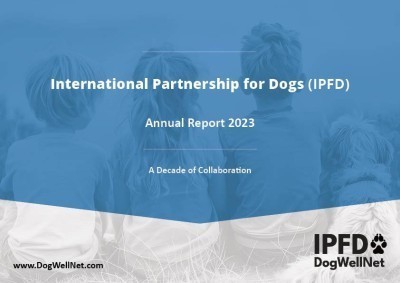The International Partnership for Dogs
The International Partnership for Dogs (IPFD) is a non-profit organization leading a global, multi-stakeholder effort to enhance dog health, well-being, and welfare.
Our Signature Work
Our Platform - DogWellNet.com

DogWellNet.com is the online platform for IPFD and is a curated information hub as well as housing resources to support actions by IPFD and its Partners and Collaborators.
International Dog Health Workshops

The IPFD's signature events, the IDHWs bring together decision makers from professional, regulatory, national and regional, welfare and other organisations that are stakeholders in dog health, well-being and welfare and human-dog interactions under the tagline 'From Information and Collaboration to Action'. The 5th IDHW takes place 13-15 June 2024, in Helsinki, Finland and will be co-hosted by the Finnish Kennel Club.
Harmonization of Genetic Testing for Dogs Database

The HGTD Database catalogs information provided voluntarily from genetic test providers (GTPs) including information on their company and services, quality measures and expertise, tests offered and more. We are continually engaging more GTP participants. IPFD has collated and assembled existing and new resources for genetic counselling and education and provided the foundation for further developments.
Health Strategies Database for Dogs

The HSDD Database includes breed-specific health/mentality testing requirements and recommendations established by Health Strategy Providers (HSPs) including kennel clubs, breed clubs, veterinary organizations, and others.
Pedigree Breeds Database

As of March 2024, our Pedigree Breeds Database lists 184 breeds. Information includes breed standards, population data, club newsletters, breed databases, videos and much more. Sections on Native Breeds and Additional Resources including Agria Breed Profiles; Globally Relevant Integrated Health Profile (GRIHP) articles, which describe the Big Picture of health on (all) conditions that are of interest within a breed; and associated IPFD WSAVA Meet the Breed articles are available. Many thanks to breed experts and clubs who share information on their breed with the DogWellNet.com Community.
Download IPFD's 2023 Annual Report: A Decade of Collaboration and other annual reports here!

